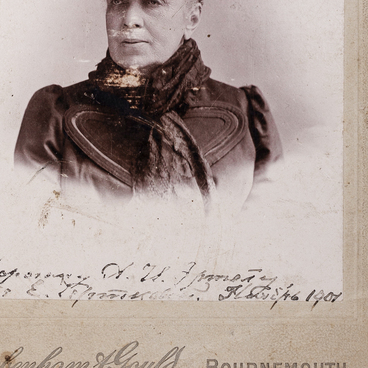Filaret Ivanovich Khrushchev was a Voronezh physician and public figure, who came from a priest’s family.
He graduated from the Voronezh Theological Seminary in 1871, and then continued his studies at the Academy of Medicine and Surgery in Saint Petersburg, from which he graduated in 1880. He had a private practice in Voronezh and also worked as a physician at the city’s various educational institutions.
Filaret Khrushchev was a member of the Voronezh branch of the Russian Society for the Protection of the People’s Health, which actively contributed to strengthening the connection between medical theory and practice. The Voronezh Community of Sisters of Mercy was established on the department’s initiative.
In 1893, the department opened a summer colony to improve the health of children from poor families. In 1898 and 1899, nurseries and shelters were arranged in local villages.
Khrushchev paid special attention to the fight against tuberculosis. So, in 1912, he initiated the establishment of a tuberculosis outpatient clinic in Voronezh and was in charge of it.
Filaret Khrushchev had a variety of interests. Apart from medicine, he was also fond of literature and history. In 1907, Khrushchev was elected to the board of the Voronezh Society of People’s Universities, which organized various cultural and educational events and promoted modern scientific and applied knowledge to the general public.
The society invited university professors from Moscow, Kiev and Kharkov to give public lectures on the most interesting topics of literature, history, chemistry and economics.
The extracurricular, aeronautics and Esperanto classes, as well as some children’s activities, were very popular. The Society paid special attention to children from poor families. They got free tickets to the City Drama Theater, attended New Year’s parties and had summer vacations.
Khrushchev was also a member of the Voronezh Scientific Archival Commission — a local history organization, engaged in collecting and describing ancient manuscripts, conducting archaeological excavations and holding discussions on various issues of history and archaeology. A great cultural event in the city’s history were the exhibitions of the archival commission dedicated to Yevfimiy Alexeyevich Bolkhovitinov, Alexey Vasilyevich Koltsov, Ivan Savvich Nikitin and Nikolay Ivanovich Kostomarov.
Filaret Khrushchev was friends with the writer Alexander Ertel, his wife and his daughters, and maintained an active correspondence with them. After Ertel’s death, Khrushchev decided to organize the writer’s memorial room in the Provincial Museum.



